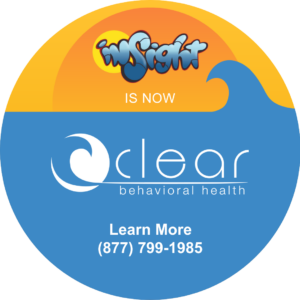Over the course of the past 20 years there have been significant advances in substance abuse treatment and technology, yet successfully treating those addicted to alcohol and drugs and helping them maintain long-term abstinence still remains a challenge. There are a number of institutions that advertise 30- or 90-day alcohol and/or drug treatment programs; however, this “one-size-fits-all” approach to treatment is not optimal for successful outcomes. In fact, the National Institute on Drug Abuse states that participation in a program for less than 90 days is correlated with reduced effectiveness, and the longer the treatment, the better the outcomes. In this article, we will cover the substance abuse treatment continuum, the importance of robust aftercare in substance abuse treatment, and what the appropriate treatment duration should be.
What are the stages of Substance Abuse Recovery?
Substance use disorder treatment requires a flexible continuum of care, allowing clients to cycle through the various levels of care as needed. Each person seeking treatment for substance abuse requires a personalized regimen based on substance use severity, psycho-social, treatment goals, and the presence of co-occurring disorders.
Each level of care varies in treatment intensity and clinical support.
Medical Detox
If the substance abuse is active and has been going on for an extended period of time, then withdrawal management and medical detox are the first steps to treatment. Quitting certain substances cold turkey is not recommended in many cases as withdrawal symptoms can be severe, requiring medical supervision in order to safely and comfortably rid the substances from the body. This process can take between 5 to 7 days, sometimes longer depending on the individual’s overall health, the severity of use, and the substance of choice

Residential treatment
Once detox is complete and the withdrawal symptoms have subsided, clients step down into residential addiction treatment. Here, the treatment focus shifts from managing withdrawal symptoms to therapeutic immersion and planning for the next level of care. Individuals begin to participate in therapy and case management sessions while benefiting from 24/7 wraparound clinical support. The length of stay at this level of care can vary, but it typically lasts at least 30 days. During this time, clients are educated about their aftercare options and prepared to step down into outpatient treatment.
Outpatient Treatment Programs
Group therapy is often a central part of rehab treatment programs. The group setting provides an opportunity for social support in sobriety. Individual therapy can be a difficult facet of rehabilitation treatment as individuals process challenging emotions like drug cravings and underlying issues such as family dynamics, relationship skills, or self-esteem. Many in recovery have co-occurring, or dual, disorders as well. These can include anxiety disorder as well as substance abuse disorder. These individuals will address addiction and other specific mental health interests in therapy. While group therapy is present throughout all levels of care, its usefulness is highlighted in outpatient treatment programs.
Partial Hospitalization Program (PHP)
PHPs offer services similar to what one would get in an inpatient program but in an outpatient setting. These programs usually meet 5 days a week for up to 6 hours a day. The typical amount of time that someone will stay at this level of care is 14-21 days.
Intensive Outpatient Programs (IOP)
Once PHP is complete, clients will step down into IOP. Programming is similar to the PHP level of care, at a reduced cadence. Typically clients meet 3 days a week, for 3 hours a day. Treatment duration varies on the individual.

Outpatient Program (OP)
OP level of care is the least intensive form of treatment. It is reserved for those who have completed all the higher levels of care listed above. It consists of one weekly individual and group therapy, typically conducted in the evenings to accommodate work/life schedules.
Alumni Program
Many treatment centers offer an alumni program for graduates that offers monthly or bi-weekly support groups to continue to stay engaged with their community and peer network.
All stages of care offer a combination of group therapy, individual therapy, mindfulness, family therapy, and psychiatry/medication management.
Click here to learn more about the different treatment programs offered at Clear Behavioral Health.
What does aftercare in substance abuse treatment look like?
Generally, substance abuse treatment incorporates behavioral therapy, medication management, and case management. Each level of care varies in intensity and duration, but all harness therapy is often delivered in both individual and group sessions, as well as psychoeducation and mindfulness. The primary modality employed is cognitive behavioral therapy (CBT), however, a multimodal approach is often best to address underlying mental health concerns.
What is aftercare?
Recovery really begins once residential treatment is complete. Maintaining sobriety in a controlled environment surrounded by staff and peers who are supportive of each other is a great start, however, the real test begins after rehab. Aftercare programs provide opportunities for clients to remain in a supportive environment and progressively step down into less intense treatment environments while receiving peer support services and ongoing therapy. Addiction aftercare programs function as a way to receive ongoing support in early recovery and ease the transition back into independent living.
Every client is different: certain circumstances will prevent some from participating in the full continuum. For example, family responsibilities, transportation problems, etc… Therefore, it is crucial that patient preference be considered in building out a plan that does not introduce any stress or resistance to minimize the chance of attrition (ref). An aftercare treatment program typically focuses on further developing relational skills, and dealing with stress and other emotions. Aftercare also helps unpack family dynamics and handle personal triggers and temptations. Again, the supportive aspect of an aftercare program can aid individuals in forming connections and building confidence. These are elements that are commonly central to a client’s full recovery.
Components of an effective aftercare program in substance abuse treatment
- Transitioning from an inpatient rehab facility to an outpatient treatment program
- Temporarily moving into a sober living facility
- Attending recovery meetings and mutual support groups outside of treatment
- Working with a sponsor or a sober mentor
- Joining the alumni program at the treatment facility
Skills learned in Aftercare
- Relapse prevention techniques
- Understand the disease of addiction
- Identify triggers that happen out in the real world and learn how to deal with them
- Build a community and peer support network
- Restore stability, consistency, and routine into daily life
- Skills to repair relationships, such as family members, that were damaged as a result of addiction
- Acknowledge the small positive changes and practice self-compassion
- Successfully transition into an independent lifestyle
- Coping skills to deal with triggers and life on life’s terms
It takes time, discipline, and patience to fully grasp these concepts and properly implement them into daily practice.

Why does treatment duration matter?
Outcome analyses at 3 and 9 months post-rehab indicate that clients who participate in the full continuum of care have greater success in maintaining sobriety and reducing symptoms than those who only engaged in only a portion of it (ref). Family and friends can play a critical role in motivating individuals to stay in treatment in the long term. Involvement of a family member or significant others in an individual’s treatment program can strengthen and extend treatment benefits. As social and familial support increases, the odds of working through aftercare in substance abuse treatment increases (ref).
Substance abuse is a complex but treatable disease that affects brain function and behavior.
Effective treatment attends to multiple needs of the individual, not just his or her drug abuse. Drugs affect the body’s central nervous system. They affect how one thinks, feels and behaves. Each drug has different mechanisms to induce feelings of pleasure in the brain, but overall long term alcohol and drug use has a significant impact on brain functioning and behavior.
Very often, substance develops as a coping mechanism for mental illness. People suffering from depression, anxiety, bipolar, schizophrenia or other disorders feel frightened by what’s happening in their heads and look to drugs or alcohol to distract from their pain. Drug use can also induce mental illness. Either way, the two are often co-occurring and therefore treating one without the other is often totally ineffective.
An appropriate treatment protocol for substance use will examine all underlying mental health conditions and address them individually once the alcohol and drugs have exited the body and withdrawal symptoms have subsided.
No single treatment is appropriate for everyone and remaining in treatment for an adequate period of time is critical.
30 or 90-day programs sound like very attractive propositions. However, addiction is a complex disease that affects various aspects of the mind, body, and spirit. Too many variables for a cookie-cutter program to address in a short period of time. Several studies show that 30-day treatment centers only offer a success rate of about 10% after one year.
Post-acute withdrawal symptoms (PAWS)
Unlike acute withdrawal, which is primarily physical withdrawal symptoms, the symptoms of post-acute withdrawal are psychological and emotional. Depending on the intensity and duration of the substance use, post-acute withdrawal is known to last months to years. The severity and frequency of symptoms depend on each individual and tend to dissipate as time goes by without the use of addictive substances.
This is why care plans, treatment duration, and aftercare must be tailored to each individual to maximize the long term effectiveness of treatment.
What determines treatment success?
Less than 42% of the individuals who enter treatment for drug and alcohol abuse end up completing it. The goal of treatment is to return people to productive functioning in the family, workplace, and community.(ref) Individual treatment outcomes depend on the extent and nature of the patient’s problems, the appropriateness of treatment and related services used to address those problems, adherence to aftercare plan, and the quality of interaction between the patient and his or her support network.(ref)
When relapse occurs many assume that treatment was a failure. However, this is not the case: relapse is very common and successful treatment for addiction typically requires continual evaluation and modification as appropriate. Lapses in sobriety do not indicate failure—rather, they signify that refinement of the care plan and further treatment is needed to maintain sobriety.
Dual Diagnosis Aftercare at Clear Behavioral Health in Los Angeles CA
Clear Behavioral Health offers a wide continuum of care to address the specific needs and treatment goals of each client. We embrace a multi-disciplinary approach and deliver evidence-based, compassionate, and individualized treatment to all of our clients across the care continuum and beyond.
Most clients choose to continue their recovery journey with Clear and seamlessly step down from inpatient treatment into our outpatient programs then aftercare located in Los Angeles, which include PHP, IOP, and OP levels of care. Our clients benefit tremendously by remaining within their peer support network and maintaining continuity of care with their clinical team. Call us today to learn more about aftercare in substance abuse treatment and how you or a loved one can start your journey to addiction recovery.

